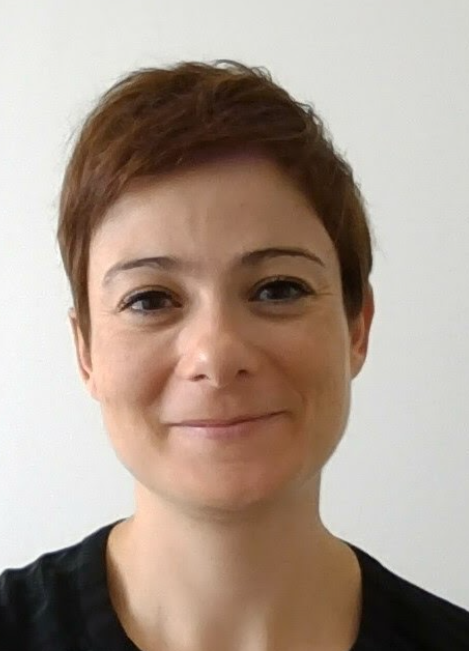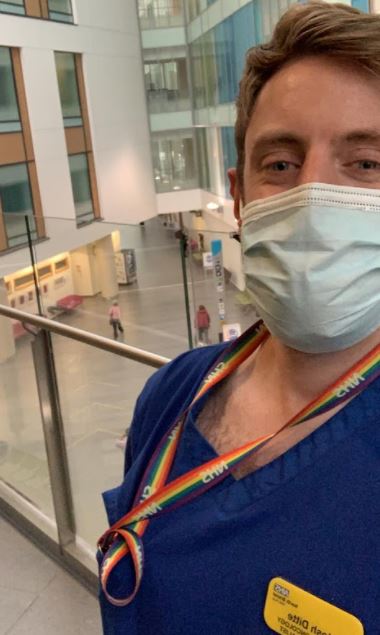It’s been more than three years since Agnès Reutenauer arrived in Canada and started on the path to resuming her work as a nurse.
But more than a year into the pandemic and amidst a nationwide nursing shortage, Reutenauer still isn’t able to practice her profession.

Despite her 14 years of work experience in France and a certification in palliative care, she had just received a report saying her education is not comparable to that of a Canadian-educated nurse.
Her experience is not uncommon. Many internationally educated nurses discover that while their profession is in demand in Canada, their credentials don’t immediately make them eligible to practice.
As health authorities across the country are sounding the alarm on the nursing exodus and shortage, many foreign-trained nurses watch from the sidelines, wanting but unable to pitch in.
“You hear all this immigration policy to get qualified nurses to come to Canada,” Reutenauer said.
“It’s like a promise that you will get your licence, but it’s not the case.”
A long, bad paper jam
To practice as a registered nurse in Canada, internationally educated nurses are required to go through the National Nursing Assessment Service (NNAS), which verifies foreign credentials and compares overseas education to that in Canada.
It’s during this first step that many internationally educated nurses get stuck.
Reutenauer began her application in 2018, the same year she arrived in Toronto. It took two and a half years to submit the required documents, and in July she received the NNAS advisory report saying her nursing education was “not comparable” to that in Canada.
She’s frustrated, she said. She thinks the paperwork did not fully reflect her education and work experience.
But having been sent directly from issuing authorities to the NNAS, the documents’ contents were beyond Reutenauer’s control.
For Anna Pohl, a nurse from Germany now based in Woodstock, ON, language barriers have made it difficult to fulfill documentation requirements.
“The problem is that my employer and my school [do not] speak any English,” she said. Pohl began her application in 2019 and is still in the process of completing her submission.
“I’m like, can I help communicate somehow?” she said, adding that it’s been difficult to raise her concerns.
“Every time I call the NNAS, I have a different person sitting there, and it always feels like you bother them.”
Rudy, a nurse from the Netherlands now based in Alberta, who asked to withhold his last name, shares similar thoughts about his paperwork.
“Our documents are not written [with] the level of detail and the format that will satisfy the NNAS,” he said.
Rudy has worked in hospital emergency departments, intensive care units, and air ambulances in the Netherlands, Belgium, and England. He holds a post-graduate diploma in pre-hospital care. Currently, he works as a flight paramedic.
“In February 2018 I came to Canada with 11 years of experience, and that’s also when my nursing career came to an end,” he said.
After two years of trying, his application file was closed in 2020 because he “was unable to present the documents they were asking for.”
“They refused to assess my case based on the documents that my school did provide,” he added.
“It’s not a matter of how good of a nurse you are. It’s a matter of if you can present the right paperwork.”

Josh Ditte, a uro-oncology nurse specialist currently in the UK, has been considering moving to Canada with his partner. He started his application with the NNAS in January this year.
While it took him eight months to gather and submit all required documents—about a month faster than average, according to the NNAS—he said the pandemic has made things more difficult, given the need to mail all submissions by post.
“[I] have to get hold of every employer I’ve ever been with as a nurse, and get them to print and sign, stamp all these forms, and then send them directly to the NNAS,” he said.
It took months between documents being sent and received; before he would learn a form was incomplete or incorrectly filled out; before he could redo and resend documents. He bore all additional postage costs.
“I just felt like crying,” he said.
Measuring overseas education and experience
While the NNAS assesses the education and work experiences of internationally educated nurses, it is the nursing regulatory bodies that determine the next steps for applicants, as they pursue work as a registered nurse, registered psychiatric nurse, or licensed practical nurse.
Nonetheless, the advisory report they provide helps inform these considerations.
“The information included in NNAS’ advisory reports reflects the requirements set by the nursing regulatory bodies in Canada, who are members of the NNAS,” said Gayle Waxman, NNAS executive director.
Asked how overseas education and experience are measured against Canadian standards, Waxman said that the nursing education curriculum provided by the applicant’s school is compared to the Canadian Nursing Entry to Practice Competencies.
“The assessment is completed through a content analysis, using a standard tool. The results of the tool help identify areas where the applicant’s education is comparable to Canadian competencies and where there may be gaps,” she said.
“Should we receive a curriculum that appears to have limited detail compared to other curriculums, this is noted on the advisory report, so that the regulatory body can take this into consideration when conducting their review.”
Waxman added that the NNAS is currently reviewing their processes.
“One area we are focusing on is making sure that the information we are requesting from employers is presented in as clear (a) manner as possible,” she said. “Our goal is to minimize the number of times our evaluators need to seek clarification from employers.”
They are also looking for ways to “expand their capacity” for digital submissions.
“Just because we didn’t train in Canada doesn’t make us any less of a nurse”
“The biggest issue for internationally educated nurses is the long wait to get registered,” said Edward Cruz, assistant professor at the University of Windsor’s faculty of nursing.
There are a variety of factors for this, he said, although it’s hard to tell where the delays come from.
“I would be remiss if I pointed fingers at someone or an organization without a complete understanding of the processes they have to go through, to make sure that documents are valid.”
Asked what could be done better, Cruz said the IENs in Manitoba Project is a good example.
The project will provide up to $23,000 per approved applicant to help cover the costs of getting licensed to practice in the province, including bridging programs, transportation costs, even child care.
“If a Canadian province can do that, what is stopping other provinces from doing the same thing?” said Cruz.
If the Manitoba Project is any indication, the support would be welcome: 1,120 applications were received within a week of launching.
Many internationally educated nurses are eager to help.
“We’re all highly skilled and we have a lot to offer,” said UK-based nurse Josh Ditte. “Just because we didn’t train in Canada doesn’t make us any less of a nurse.”

(supplied photo)
Anna Pohl, from Germany, said that “none of the people I’ve talked to are hesitant to do a practical or theoretical test. It’s just that we’re stuck in that first step.”
Agnès Reutenauer, too, said she’s not against the assessments.
“I would be the first one to say yeah, we need to check [the skills and education of foreign-trained nurses],” she said.
“But when you see the whole thing, do they really want to include us?”
Cruz recalls Ontario Health Minister Christine Elliott’s call for healthcare workers from the Philippines last April to assist during COVID-19’s third wave.
“Is it to become nurses, or to become personal support workers?” he said. “Because if it’s to become personal support workers, I think they should just leave Filipino nurses alone.”
“We already have too many nurses—not just Filipino IENs—in Ontario who are working in low paid jobs. And I think we owe these individuals assistance and an opportunity to become nurses.”
Johna Baylon is a freelance journalist and writer based in Vancouver, B.C. She is drawn to stories around immigration, care work, and communities in the diaspora. Born in the Philippines, Baylon grew up in Hong Kong, where she covered food and design as a writer and editor prior to moving to Canada in 2019.






Exactly. I feel I like I should quit this profession, it’s not worth it waiting more than 4years and still unable to see any path. So Frustrating
Time for NNAS to modernize their approach of evaluating foreign nurse!
I can feel the pain of those nurses who want to join the critical care team. But still in the unbelievable process game. I applied to NNAS FOR BC in 2016
I could not get my report because I got 9 in listening in CELBAN exam ( even I gave Celban so many times) I had renewed my NNAS application 3 times but couldn’t get the report because of my Celban listening score each tine I got 9 in listening. Now july2021 BC has waved the English from NNAS. Then I called to NNAS about get some discount to reapply for BC. They said I hV to pay full fee. Despite the fact that same documentation is good that time only needed English. They hv wasted my 4 years now still need to pay again ( without English exam)
I think, it’s just to make money .. from hard work we do to achieve our goal. They know we r nurses we never go to other profession.
But now I broke..
The entire process is to destroy a foreign nurse’s aspirations and push them into a low paying job like a PSW. The Canadian nursing boards want foreign nurses to stay in the trenches with a broken morale.
NNAS is an American body (CGFNS sister concern) which only exists to make things difficult and expensive for foreign nurses.
The nursing boards do nothing but rely solely on the NNAS report and advise you to undertake the entire program again! Money making business, nothing else.
Each Province should assess applicants in there territory……..No need for one size fits all process.
You always amaze me Jona. Very good read, on point, relevant and timely!
The system is elitist and borders on racism.
This is frustrating for as an IEN here in Canada, I already had my NCLEX (2018), but still can’t work as a Nurse here in Ontario because of the delay from NNAS. They should have a work around for those who already passed NCLEX. It turns out I might have to move to the US with my husband as my EB3 petition is now current.
[…] Mainstream service providers need to hire more practitioners from countries refugees are coming from, says Kambere, which would require dismantling systemic barriers for migrants with non-Canadian qualifications. […]
[…] Mainstream service providers need to hire more practitioners from countries refugees are coming from, says Kambere, which would require dismantling systemic barriers for migrants with non-Canadian qualifications. […]
I immigrated to Canada 20 years ago as an RN, I applied direct to BCCNM, the process was clear and concise, within 18 months both my husband and I had relocated and were working as RN. It appears the NNAS is the barrier.
I am currently supporting a nurse trying to get registered and am appalled at the process, as may others have stated there is a lack of congruity between the NNAS process for assessing and the actual programs content and standard in other countries.
It is time for the the Health Ministers federal and provincial and the regulatory bodies to address this before the health system is strained even greater than it is now.